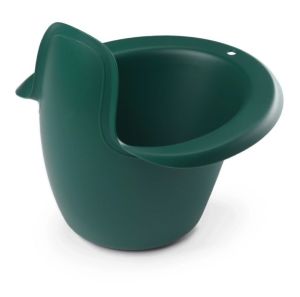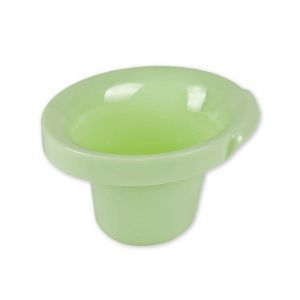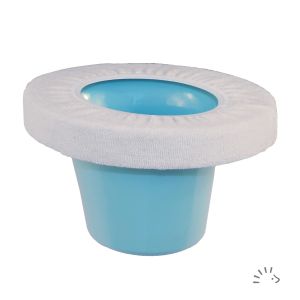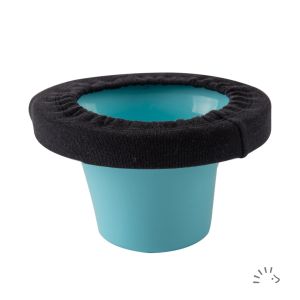Elimination Communication
Elimination Communication (EC)
Parents who choose Elimination Communication, often abbreviated to EC, want to help their babies with their natural need not to soil their own environment. Babies are essentially born potty-trained and can give signals to their parents when they need to pee and poop. These signals are essentially no different from the signals babies use to indicate they want to eat or sleep. If you pay close attention to these signals and learn to recognize your child's pattern, you can successfully help your child pee and poop in a timely manner. This way, you don't need diapers, at least not when you have time to pay attention to your child's signals and help them use the potty. With potty training communication, your child will often become potty trained sooner, so although it can be time-consuming at first, you can ultimately save a lot of time and money.
Can I do EC part-time?
You can do Elimination Communication whenever it fits your schedule. It's not always possible to keep an eye on your children. When you have to work, have an appointment, want to get out of the house, or just want a good night's sleep, it's perfectly possible to temporarily skip EC. You can use cloth diapers or training pants during these times, depending on whether you expect small or large wetting. Cloth diapers are more absorbent than training pants. Training pants absorb less, but your child can take them off more easily. If your child can already use the potty independently, this is ideal. However, babies who are potty-training often can't use the potty independently, so a cloth diaper is often a safe backup for larger pees or bowel movements.
Advantages of Elimination Communication
- Your child retains their innate potty skills and can use the potty or toilet independently much earlier than their peers.
- Your child is not at risk of diaper rash.
- You need few or no diapers. This saves a lot of waste and CO2 emissions. Although cloth diapers also reduce waste and CO2 emissions, going without diapers is certainly more sustainable.
- You save a lot of money. Disposable diapers cost an average of €2,000 per child, and cloth diapers cost an average of €1,000 per child until potty training. With EC, you have lower costs. If you use cloth diapers part-time, you still save a lot of money.
Disadvantages of Elimination Communication
It takes time, attention, and perseverance to recognize your child's rhythm. You'll experience some frustrating moments. If your child isn't wearing a diaper, every pee or poop that doesn't go in a potty will end up on the floor somewhere. So be prepared for this to happen and, if necessary, take this into account by keeping blankets and rugs off the floor. If you're lucky enough to have summer, let your child play outside in the garden as much as possible so that accidents require less cleanup. Another disadvantage is that your environment isn't set up for you to use toilet training with your baby. Does your child go to daycare or a babysitter? Then you're really lucky if you know someone who follows this routine and recognizes your baby's signals. In other cases, you'll have to accept that your child won't be able to use EC when they're not with you.
Is EC suitable for you?
It's clear that Elimination Communication has enormous advantages. You help your child become potty trained quickly and you save a significant amount of waste, CO2 emissions, and money. Yet, relatively few parents choose this option because it requires a lot of attention, can be frustrating, and the environment isn't geared towards EC. But if you're in a situation where it's feasible for you and your baby to implement potty training communication, it's definitely worth a try. Once you find the rhythm, it'll go very smoothly, and you'll quickly see the benefits.



